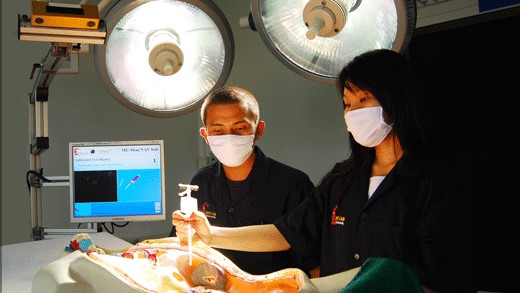Robot-Assisted Surgery and Computer-Integrated Surgery are two fascinating research areas at BART LAB. These fields aim to enhance surgical procedures by leveraging the capabilities of advanced technologies and fostering collaborations between humans (surgeons) and machines (computers and robots).
Robot-Assisted Surgery
In Robot-Assisted Surgery, BART LAB is at the forefront of groundbreaking projects supported by prestigious institutions. One such project involves telesurgery using multi-modality in telecommunications. This research explores the potential of remote surgical procedures, enabled by cutting-edge communication technologies, to bring surgical expertise to distant locations and underserved areas. Another noteworthy project is the development of MU-Laparobot, a corporative surgical robot designed explicitly for laparoscopic surgery. This robot aims to augment the capabilities of surgeons in performing minimally invasive procedures, enabling greater precision and dexterity.
Additionally, BART LAB is focused on creating a robotic surgical training system incorporating haptic features and virtual reality. It offers a realistic and immersive platform for surgeons to practice and refine their skills. Lastly, the lab is working on the MU-TKR Robot, revolutionizing total knee replacement surgery through its innovative rotation-based approach. These endeavors highlight BART LAB’s commitment to pushing the boundaries of Robot-Assisted Surgery for improved patient outcomes.
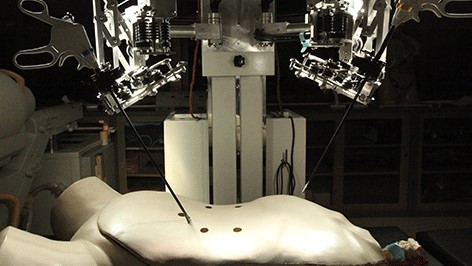
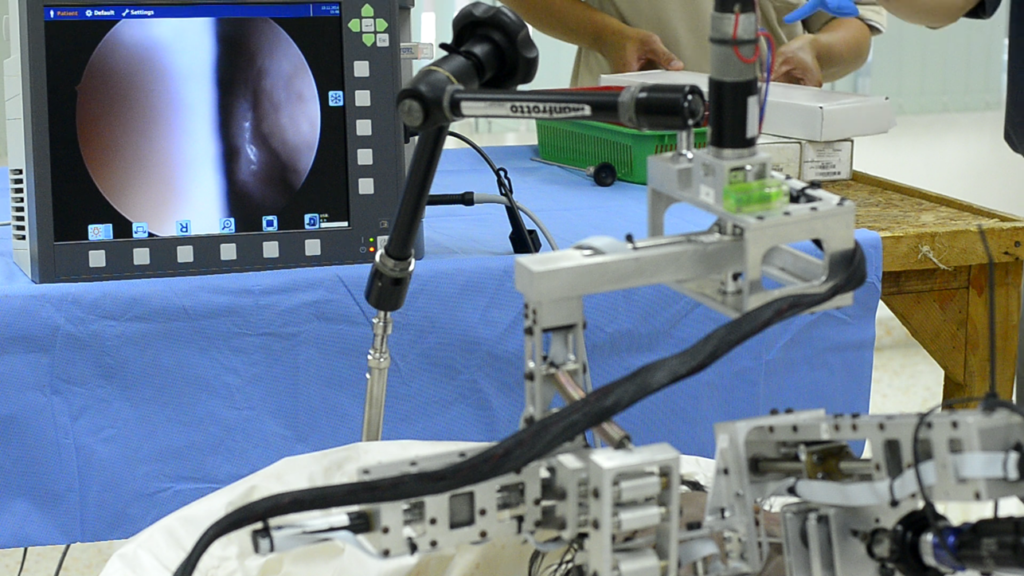
Computer-Assisted Surgery
In Computer-Integrated Surgery, BART LAB is dedicated to integrating advanced imaging and navigation technologies into surgical procedures. The lab’s research includes projects supported by the National Metal and Materials Technology Center of Thailand. One such project focuses on fluoro-navigation, which aims to enhance the accuracy and precision of closed intramedullary nailing of the femur. Surgeons can effectively navigate and position implants by combining fluoroscopy and navigation systems, leading to better patient outcomes. BART LAB also explores calibration methods and techniques for fluoroscopy and ultrasound, ensuring the accuracy and reliability of these imaging modalities during surgical procedures. Moreover, the lab is actively involved in breast biopsy navigation, leveraging mammograms and real-time ultrasound images to guide surgeons and improve the efficiency and accuracy of the procedure.
Additionally, BART LAB is researching ultrasound calibration methods and techniques to optimize ultrasound imaging in surgical interventions. Lastly, the lab is working on using electromagnetic field tracking to enhance colonoscopy procedures’ precision and navigation capabilities.
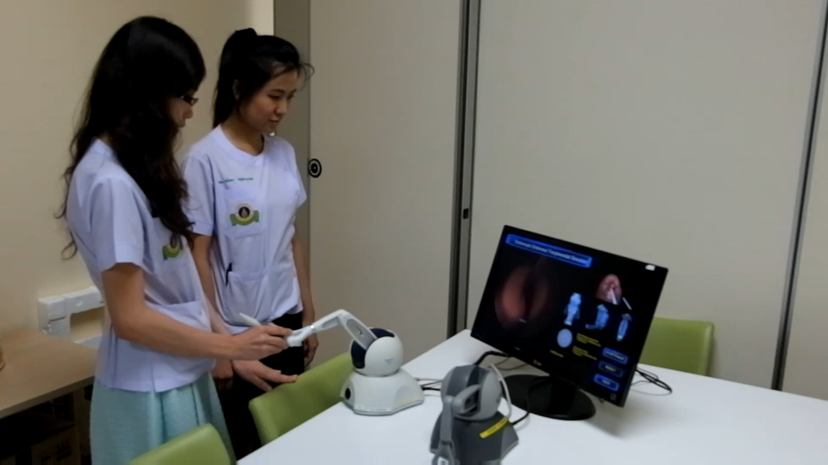
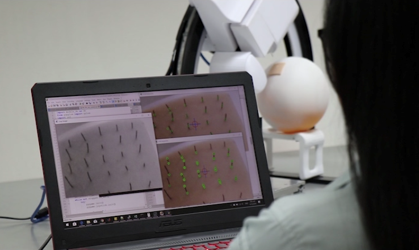
Through these interdisciplinary research projects, BART LAB aims to advance the fields of Robot-Assisted Surgery and Computer-Integrated Surgery. By seamlessly integrating cutting-edge technologies, such as robotics, telecommunication, haptics, virtual reality, and advanced imaging, the lab strives to optimize surgical procedures, improve patient outcomes, and empower surgeons with innovative tools and techniques. BART LAB’s collaborations with esteemed institutions and its dedication to research and development underscore its commitment to driving innovation in the medical field. With a focus on leveraging the strengths of humans and machines, BART LAB paves the way for a future where surgical interventions are more precise, efficient, and accessible, ultimately benefiting patients and healthcare providers alike.


